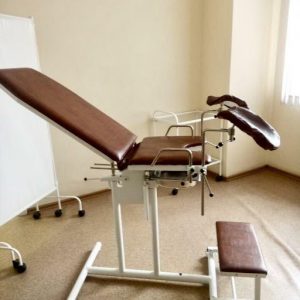Every year Lukashenka calls on Belarusians to give birth. In August 2018, he offered to give birth to three or four children. In 2019, the dictator said that every third child born to a woman belongs to him and promised support to large families. In November 2020, he said: “Give birth, for God’s sake. We will find this money — 10 thousand for each baby after the birth of two children. Because that’s the main thing.” However, the population in Belarus is not growing – not only because of emigration and the number of deaths. The huge impact is from the lack of state care for pregnant and childbirth women.
This fall, the country was rocked by the deaths of pregnant women with coronavirus. In early October, a mother of three children died in Gomel at the 26th week of pregnancy. Almost 85% of her lungs were affected by a coronavirus. Treatment was started untimely, and the baby died in the womb. In October, another pregnant woman died in Glubokoe from COVID-19. She was seven months pregnant, and doctors saved her baby. A woman died in a maternity hospital in Vitebsk – her coronavirus was confirmed three weeks before the birth and was in severe form. And in Minsk, from October 11 to 24, three expectant mothers, young women aged 27 to 30 years, died.
Unfortunately, parturient woman and their children often died before the coronavirus, even though the statistics of the Ministry of Health spoke of very low mortality – lower than in the UK, Poland and the USA. The infant mortality rate in Belarus in 2019 was 2.4 per 1,000 live births, and maternal mortality was 1.1 per 100,000. Only one case was registered when the mother died during childbirth. However, is everything rosy?
 February 2016 was tragic for two girls from Slutsk. Healthy, full-term children died in both of them, and the same doctor observed pregnant women. For 24-year-old Anastasia, this was the first pregnancy. She felt fine, but in the last three weeks, she complained about the tone of the uterus. The obstetrician-gynaecologist said that this is normal, and thus the uterus is preparing for childbirth. On the morning of February 5, Nastya came to the examination with complaints.
February 2016 was tragic for two girls from Slutsk. Healthy, full-term children died in both of them, and the same doctor observed pregnant women. For 24-year-old Anastasia, this was the first pregnancy. She felt fine, but in the last three weeks, she complained about the tone of the uterus. The obstetrician-gynaecologist said that this is normal, and thus the uterus is preparing for childbirth. On the morning of February 5, Nastya came to the examination with complaints.
But after the cardiotocography of the fetus, the doctor sent her home. And on February 8, the child’s heart was not beating. Doctors sent Nastya to give birth to her dead daughter in neighbouring Soligorsk – it turned out that her baby died about two days ago. In the preliminary examination report issued to relatives after the autopsy, it is said: the girl died of hypoxia. The doctor said they were not gods and then cynically added: “She is young and will give birth again.”
Two days later, 32-year-old Natalia, for whom it was already the fourth pregnancy, lost her child. The woman felt very bad at the beginning of childbirth, lost consciousness and begged to have a caesarean section, but the doctor said that Natalia was pretending and could give birth on her own. In addition, Natalia’s right side was suddenly paralyzed, her arms and legs did not move, she could not speak or move. As a result of the wrong actions of doctors and their unwillingness to perform a cesarean section, the woman’s uterus ruptured, bleeding opened, and her daughter drowned in the womb. Natalia won’t have any more children.
In December 2018, a tragedy happened in the maternity hospital of the city of Molodechno – a resident, Natalia, lost twins in the fifth month of pregnancy. The woman was 40 years old, she had no complaints, and two children of 14 and 6 years were already growing up. Natalia did observe in Minsk at the Republic Scientifical and Practical Centre “Mother and Child”, and the pregnancy proceeded safely. In Molodechno, a woman went to a planned hospitalization for ten days. By the evening of the first day, her blood pressure rose strongly, she fainted. Doctors began to stop the attack of hypertension, but the pressure was growing. No one controlled the condition of the children. Only five days later, after Natalia’s husband interventing, doctors made her an ultrasound observe. It turned out that one child had already died, the second was dying. The woman was in critical condition. Doctors from Minsk came to rescue her and transported her to the Republic Scientifical and Practical Centre “Mother and Child”. Natalia’s husband appealed to the prosecutor’s office with a request to check how doctors helped his wife in the Molodechno maternity hospital. The Molodechno District Department of the Investigative Committee refused to initiate a criminal case due to the lack of corpus delicti. The Republic Scientifical and Practical Centre “Mother and Child” did not comment on the medical errors of the doctors of the district maternity hospital. They said that the woman’s body was not set up for multiple pregnancies, and if the children died inside the mother, they had no chance of surviving.
March 8, 2019, was a terrible day for Dmitry from Soligorsk – he buried his 38-year-old wife and a stillborn son. Dmitry was connected with Olga for five years, two of which were in an official marriage. The pregnancy proceeded wonderfully, and the family was happily waiting for the baby. Olga did observe in the women’s clinic of the Soligorsk Central District Hospital, but she did an ultrasound in Minsk. The due date was set for March 24, but the deterioration of health began on March 2 – Olga’s blood pressure rose. On March 4, Dmitry brought his wife to a women’s consultation, where she got urgently hospitalized. However, doctors didn’t carry out any specific procedures in the hospital – they made only droppers and gave pills to reduce blood pressure. On March 5, after the ultrasound, Olga heard that the baby’s heartbeat was weak, but they chose to do a caesarean section the next day. Already at lunch, the baby’s heart stopped. The doctors decided that Olga would give birth to a dead son naturally. After giving birth, she started bleeding, and a day later, the woman died in intensive care. The tragic story of the family appeared on the opposition portal. In the comments, people said doctors in maternity hospitals did not want to do a caesarean section. To get a referral for surgery, some families had to pay a bribe.
 Perhaps someone might think that this attitude towards patients and children depends on the low salaries of doctors. They do not care whether they are fired or not after a tragic incident because they do not want to work under the pressure of the administration and the authorities. But even additional money cannot save the situation. In the summer of 2018, Valentina Zakharevich returned from Moscow to Belarus to give birth at home. The woman’s pregnancy was without pathologies, tests and ultrasound prescribed by doctors. The patient passed on time and complained only of intermittent heartburn. Valentina decided to give birth in the VIP department of the 6th maternity hospital in Minsk, with whom she signed a contract at the 37th week of pregnancy. Ultrasound showed that the baby was large (almost 5 kilograms), but the doctors decided that Valentina would give birth naturally. On the night of August 18-19, she could not sleep because of abdominal pain, and in the morning decided to go to the hospital. Doctors put her in the department of pathology of pregnancy. However, she suffered pain the next day, August 20. The doctor with whom she signed the contract for childbirth appeared in the ward only twice, and the second time after the call from Valentina’s husband. The woman was taken away to give birth. During childbirth, amniotic fluid got into the blood, and two days after the birth, she died.
Perhaps someone might think that this attitude towards patients and children depends on the low salaries of doctors. They do not care whether they are fired or not after a tragic incident because they do not want to work under the pressure of the administration and the authorities. But even additional money cannot save the situation. In the summer of 2018, Valentina Zakharevich returned from Moscow to Belarus to give birth at home. The woman’s pregnancy was without pathologies, tests and ultrasound prescribed by doctors. The patient passed on time and complained only of intermittent heartburn. Valentina decided to give birth in the VIP department of the 6th maternity hospital in Minsk, with whom she signed a contract at the 37th week of pregnancy. Ultrasound showed that the baby was large (almost 5 kilograms), but the doctors decided that Valentina would give birth naturally. On the night of August 18-19, she could not sleep because of abdominal pain, and in the morning decided to go to the hospital. Doctors put her in the department of pathology of pregnancy. However, she suffered pain the next day, August 20. The doctor with whom she signed the contract for childbirth appeared in the ward only twice, and the second time after the call from Valentina’s husband. The woman was taken away to give birth. During childbirth, amniotic fluid got into the blood, and two days after the birth, she died.
Often women have to fight for the life of their child even before his birth. For example, if an ultrasound shows pathology, the doctor insists on abortion for medical reasons, but the Belarusian wants to keep this child. In 2019, Ksenia from Minsk shared her story. Her eldest son Misha might not have been born. On ultrasound, doctors examined six fingers on his hands and persuaded the student to have an abortion. She justified this by saying that polydactyly can be a sign of a severe illness. Ksenia refused, even though her man called the unborn baby a devil. No doctor explained to Ksenia why polydactyly is dangerous. Two weeks after giving birth, the baby underwent surgery and removed the extra fingers. Now it is the same child like the others.
 More than 90% of women experience violence in childbirth in Belarus. The figure is terrible – many Belarusians in the most vulnerable state have to go through the bullying of doctors who want to meet the work schedule. Minsk resident Alexandra Kshova went through this. She was going to give birth to her husband and paid $ 200 for it, but everything went completely wrong according to plan. The woman arrived at the maternity hospital with an opening of 5 centimetres. During childbirth, the midwife allowed her to sit on the fitball and move. Then a young doctor came, who took Alexandra away from her husband to another ward. Then he put the woman on a chair – the opening was already about 8 centimetres, and the doctors decided to pierce the amniotic bladder, saying it has fulfilled his function anyway. Alexandra resisted, fearing that this would stop labour, increase pain during contractions and increase the likelihood of infection. But the doctors just laughed, punctured the bubble, and then gave her a paper to sign that Alexandra agreed to it on her own. The contractions stopped, and the doctors injected the woman with oxytocin, and then they began to squeeze out the baby and cut the perineum without the consent of the parturient woman. After giving birth, Alexandra felt humiliated and as if she had been raped. She wrote a complaint to the Ministry of Health – the Ministry of Health admitted that the doctors violated the intimacy of childbirth. The maternity hospital agreed with this only behind the doors of the commission.
More than 90% of women experience violence in childbirth in Belarus. The figure is terrible – many Belarusians in the most vulnerable state have to go through the bullying of doctors who want to meet the work schedule. Minsk resident Alexandra Kshova went through this. She was going to give birth to her husband and paid $ 200 for it, but everything went completely wrong according to plan. The woman arrived at the maternity hospital with an opening of 5 centimetres. During childbirth, the midwife allowed her to sit on the fitball and move. Then a young doctor came, who took Alexandra away from her husband to another ward. Then he put the woman on a chair – the opening was already about 8 centimetres, and the doctors decided to pierce the amniotic bladder, saying it has fulfilled his function anyway. Alexandra resisted, fearing that this would stop labour, increase pain during contractions and increase the likelihood of infection. But the doctors just laughed, punctured the bubble, and then gave her a paper to sign that Alexandra agreed to it on her own. The contractions stopped, and the doctors injected the woman with oxytocin, and then they began to squeeze out the baby and cut the perineum without the consent of the parturient woman. After giving birth, Alexandra felt humiliated and as if she had been raped. She wrote a complaint to the Ministry of Health – the Ministry of Health admitted that the doctors violated the intimacy of childbirth. The maternity hospital agreed with this only behind the doors of the commission.
 Anna Titova’s baby died in the womb. At 38 weeks, she stopped feeling the baby’s movements and immediately went to the clinic to do CTG. The recording showed: the child’s heart was not beating, and the ultrasound also confirmed this. Anna was taken to the maternity hospital, where doctors immediately blamed her for the baby’s death in the womb. The autopsy showed that the cause of death was fetomaternal transfusion, one of the rarest pathologies that occur once in a hundred thousand births. Health workers began to stimulate childbirth with oxytocin. Anna started giving birth, and her fetal bladder was opened. The process lasted two hours. The woman lied on her back, and the doctors opened the cervix manually. Anna was on the verge of losing consciousness. She asked for anaesthesia, but they injected paracetamol into her catheter, which only made it worse. From the tension, Anna’s capillaries began to burst in her eyes and on her chest. Then the doctors squeezed out the child, pressing elbows on the woman’s stomach, without warning her. Foreign medical students were present at the birth, and they were shocked by the ongoing rudeness towards the woman giving birth. Due to the actions of doctors, Anna herself almost died, but they managed to save her in the intensive care unit. And even despite the pain (mental and physical), the woman decided to have another birth – this time, everything went more successfully, and her son was born alive.
Anna Titova’s baby died in the womb. At 38 weeks, she stopped feeling the baby’s movements and immediately went to the clinic to do CTG. The recording showed: the child’s heart was not beating, and the ultrasound also confirmed this. Anna was taken to the maternity hospital, where doctors immediately blamed her for the baby’s death in the womb. The autopsy showed that the cause of death was fetomaternal transfusion, one of the rarest pathologies that occur once in a hundred thousand births. Health workers began to stimulate childbirth with oxytocin. Anna started giving birth, and her fetal bladder was opened. The process lasted two hours. The woman lied on her back, and the doctors opened the cervix manually. Anna was on the verge of losing consciousness. She asked for anaesthesia, but they injected paracetamol into her catheter, which only made it worse. From the tension, Anna’s capillaries began to burst in her eyes and on her chest. Then the doctors squeezed out the child, pressing elbows on the woman’s stomach, without warning her. Foreign medical students were present at the birth, and they were shocked by the ongoing rudeness towards the woman giving birth. Due to the actions of doctors, Anna herself almost died, but they managed to save her in the intensive care unit. And even despite the pain (mental and physical), the woman decided to have another birth – this time, everything went more successfully, and her son was born alive.
In Belarus, a woman has no chance to give birth in a private maternity hospital because the state has a monopoly in the medical field. And this is a real problem: in the state maternity hospital, no one is interested in a Belarusian woman giving birth longer than the medical shift lasts. Doctors and obstetricians do not sit next to a woman but run to other parturient women. The results are stress, constant screams and breakdowns. The victims are defenceless women who are not even able to stand up for themselves during childbirth. Hence the desire to quickly finish with the “problem” by any means and go to drink tea. We note the lack of materials (which is seen in the fight against coronavirus), strict reporting on medicines, limited human resources (for example, people come to the Novopolotsk maternity hospital from Polotsk and nine other districts of the Vitebsk region). Here are a few more explanations why doctors have no desire to do a cesarean section. The removal of state monopoly would eliminate some tension between the doctor and the parturient woman. After all, a private maternity hospital will always look for an opportunity to make childbirth more comfortable. Nobody will shout at the woman, only trusted people will be around, and she will spend the time before and after birth in comfort and warmth. And the child will be with his mother right away – nobody won’t take him away for a minute. This practice already exists in the countries of the European Union and even in neighbouring Ukraine. And for our medicine, it is still a matter of the future.
 And finally, let’s say a few words about gynaecologists, whom the Belarusian girl encounters at school. Very often, the first appointment traumatizes the psyche. The fear will remain with the woman for life. A minor girl who has reported a sexual act may get accused of prostitution. Doctors often threaten to tell the mother or the school principal. When examined, schoolgirls are often hurt. Doctors advise women who have not given birth to have a child faster and are interested in why there are no children and hint at the age, saying that “the clock is ticking.” It is not surprising that choosing a gynaecologist in Belarus turns into a real quest, and those who have the opportunity are observed in private medical centres.
And finally, let’s say a few words about gynaecologists, whom the Belarusian girl encounters at school. Very often, the first appointment traumatizes the psyche. The fear will remain with the woman for life. A minor girl who has reported a sexual act may get accused of prostitution. Doctors often threaten to tell the mother or the school principal. When examined, schoolgirls are often hurt. Doctors advise women who have not given birth to have a child faster and are interested in why there are no children and hint at the age, saying that “the clock is ticking.” It is not surprising that choosing a gynaecologist in Belarus turns into a real quest, and those who have the opportunity are observed in private medical centres.
And what about the state? And the state is happy to interfere in the reproductive rights of women and underage girls. In 2019, the head of the department for combating human trafficking, Evgeny Dubanevich, suggested that gynaecologists report directly to the head of the local Department of Internal Affairs about girls under 16 who had sexual intercourse. And on May 9, 2021, the pro-government “political scientist” Vadim Borovik suggested adding points to the centralized testing to girls who did not engage in sexual contact. He also spoke about the impracticability of sex education in schools: “Because yes, we will have less IVF. We will have healthier young people. We will not educate what condoms to wear at school, but we will teach her that you need to respect your husband, and a husband should respect his wife, that the child is a priority in the family.”
As we can see, examinations by a gynaecologist from an early age, dictated by the care of the authorities, are not a guarantee that the girl will be able to become a mother of a healthy baby in the future and not die during childbirth. The state requires Belarusians to give birth but can’t provide normal conditions or qualified medical care. As a result – tragedies happen. And many girls and women need psychological help after going to the gynaecologist and giving birth. And therefore, it is not surprising that they deliberately refuse to give life to children.







